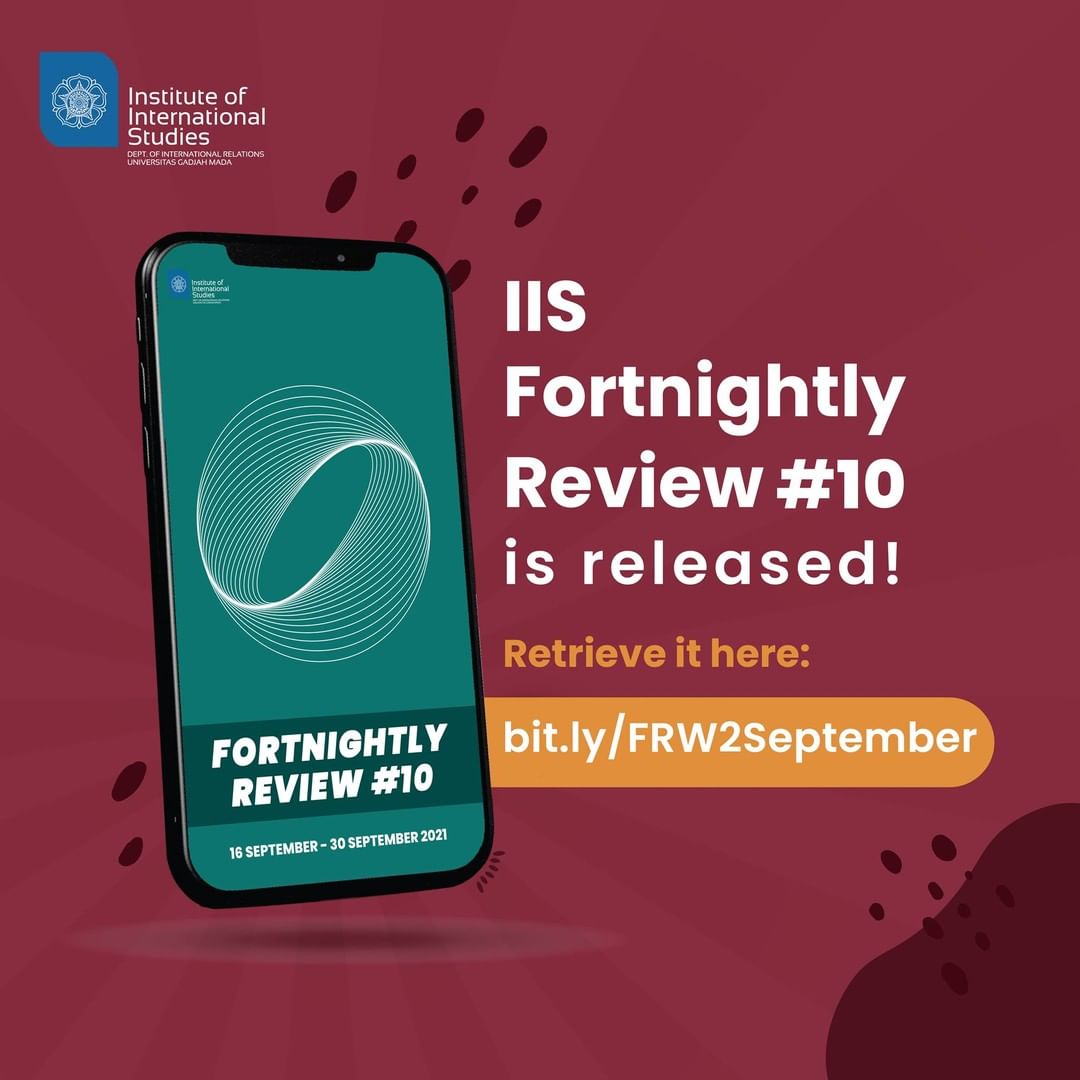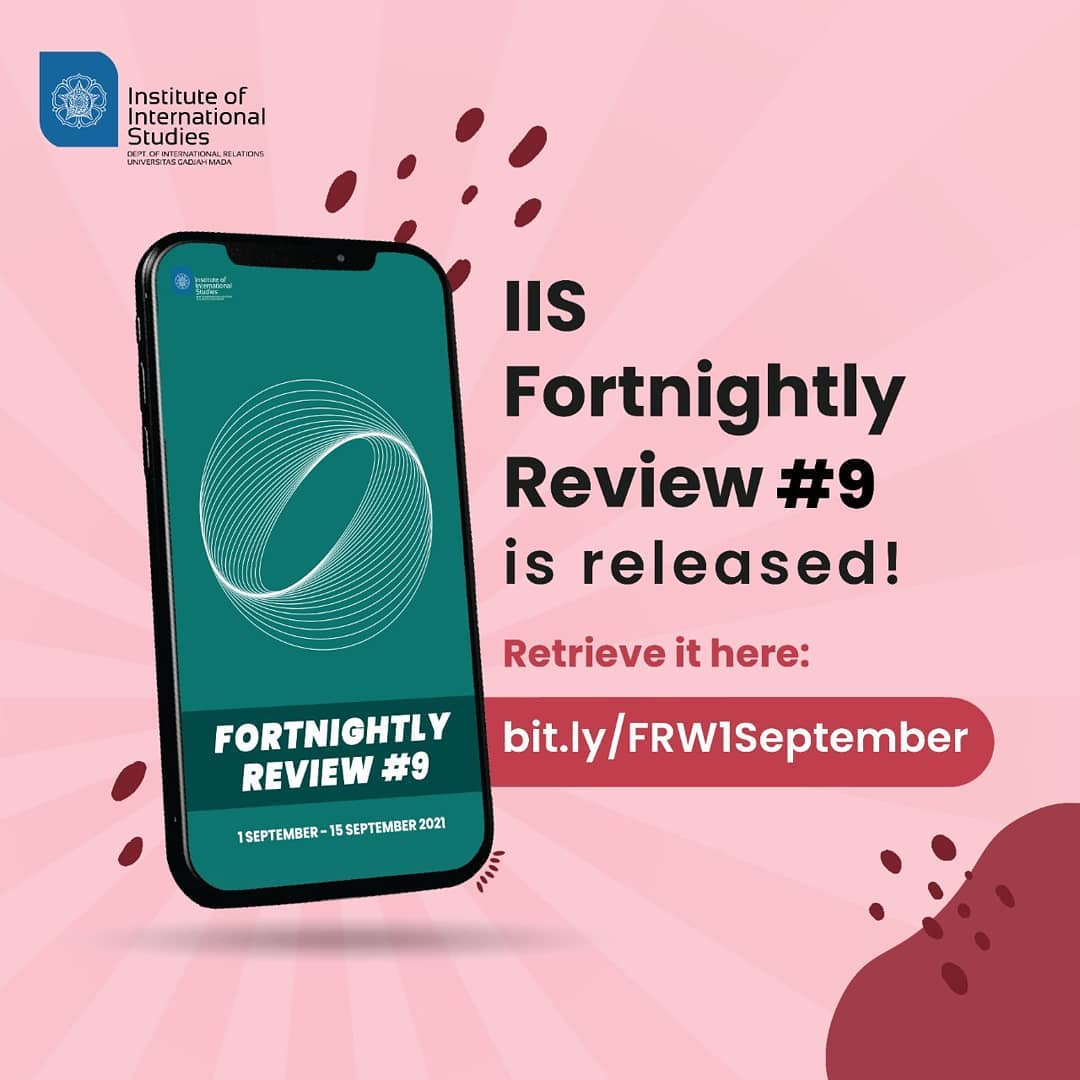Our tenth edition of Fortnightly Review is out now! Articles featured in this edition are:
• Is Indonesia Suffering from a Decline in Academic Freedom and Freedom of Expression?: A Closer Look at the Case of Saiful Mahdi and the ITE Law (Nabilah N.A)
• Afghan Women: “They Can Not Eliminate us From the Society.” (A. Indriyosanti)
• Rethinking China’s Official Disengagement from Coal Project Funding: A New Arena for Sino-US Rivalry? (R.B.K. Sianturi)
Access the review through : https://simpan.ugm.ac.id/s/RXKmeLSsDCnZ4yK








